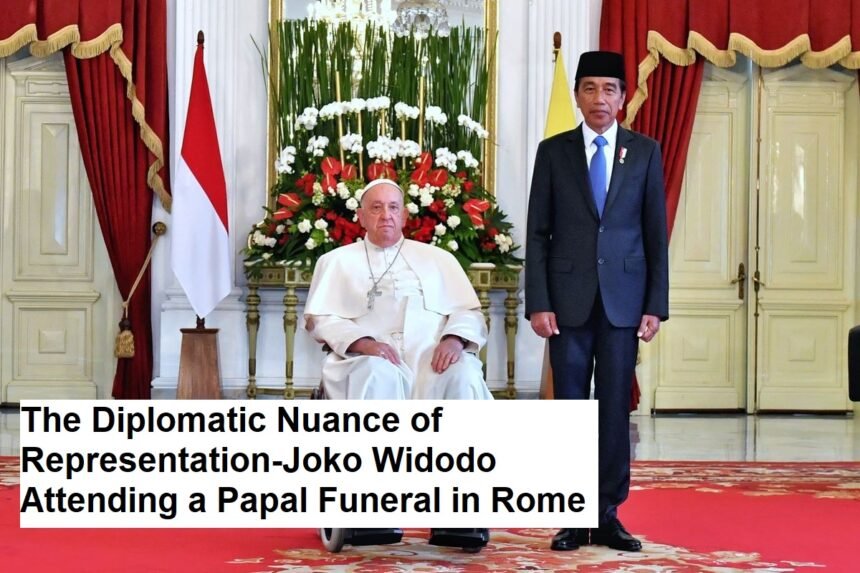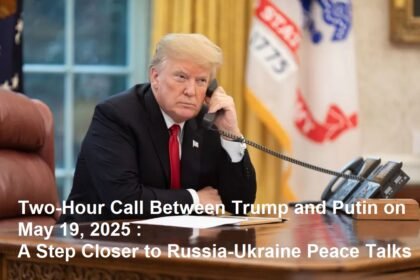The potential delegation of former Indonesian President Joko Widodo by incumbent President Prabowo Subianto to represent Indonesia at the funeral of Pope Francis in Rome is a decision pregnant with diplomatic and political significance. Beyond the immediate act of paying respects to a globally influential figure, such a move resonates with deeper implications regarding Indonesia’s foreign policy, its relationship with the Catholic Church, and the delicate transition of power within the nation.
From a foreign policy perspective, sending a high-profile representative like Joko Widodo underscores Indonesia’s commitment to interfaith dialogue and its recognition of the Catholic Church’s vast influence on global affairs. Indonesia, as the world’s largest Muslim-majority nation, has consistently positioned itself as a champion of religious tolerance and understanding. A gesture of respect extended to the head of the Catholic Church, even in death, reinforces this message and solidifies Indonesia’s image as a responsible and engaged member of the international community. It demonstrates a willingness to engage with diverse religious and cultural viewpoints, fostering diplomatic relations and goodwill with nations and communities worldwide.
Furthermore, the relationship between Indonesia and the Vatican has historically been one of mutual respect and cooperation. The presence of a high-level delegation led by a former president signifies the continuation and strengthening of this bond. It acknowledges the Catholic Church’s presence and contributions within Indonesia, where Catholics form a significant minority. Such a delegation serves to reassure the Catholic community within Indonesia of the government’s commitment to religious freedom and inclusivity, promoting social harmony and stability.
Beyond the realm of international relations, the internal political dynamics also contribute to the significance of this decision. President Prabowo’s choice to delegate Joko Widodo, his predecessor and former political rival, carries substantial weight. It signals a commitment to continuity and stability in the transition of power, suggesting a willingness to transcend partisan politics for the greater good of the nation. This move can be interpreted as an effort to present a unified front to the international community, showcasing Indonesia’s political maturity and demonstrating that national interests outweigh personal or political differences.
Moreover, it strategically leverages Joko Widodo’s established international reputation. Having served as president for two terms, Joko Widodo has cultivated strong relationships with global leaders and has garnered respect for his leadership in economic development and regional stability. His presence at the funeral lends additional gravitas to the Indonesian delegation and underscores the importance Indonesia places on this event.
However, the delegation of Joko Widodo also presents a nuanced perspective on the future of Indonesian politics. It suggests that Joko Widodo, despite relinquishing the presidency, remains a prominent and influential figure in Indonesian affairs. His continued engagement in international diplomacy hints at a potential future role in shaping Indonesia’s foreign policy, even in a post-presidential capacity. This signals that his experience and international connections remain valuable assets for the nation.
In conclusion, the potential deployment of Joko Widodo by President Prabowo to attend the funeral of Pope Francis transcends a simple act of mourning. It is a carefully considered diplomatic maneuver that reinforces Indonesia’s commitment to religious tolerance, strengthens its relationship with the Catholic Church, and signals a commitment to continuity and stability in the transition of power. By leveraging Joko Widodo’s international stature, President Prabowo demonstrates a pragmatic approach to foreign policy, highlighting the importance of national unity and the enduring value of experience in navigating the complex landscape of international relations. The event, therefore, becomes a stage upon which Indonesia projects its image as a responsible, engaged, and forward-looking nation.









